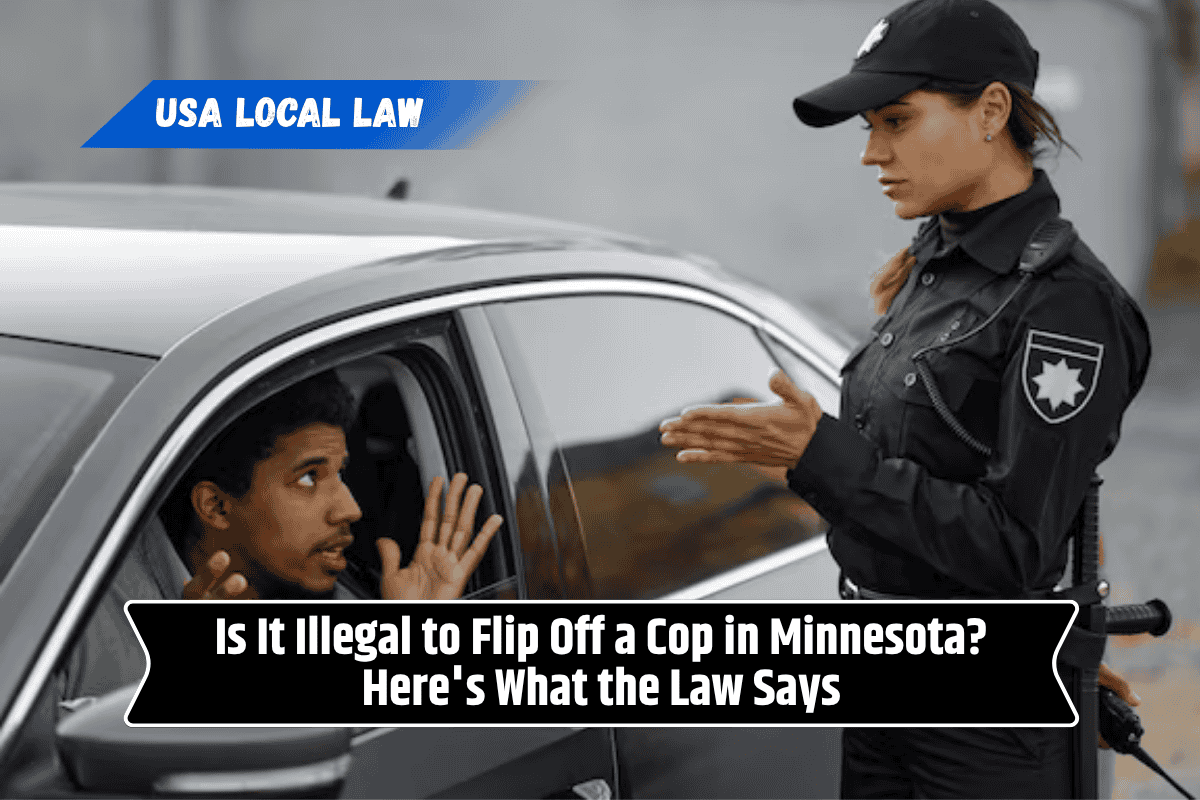It’s tempting to express frustration when you feel mistreated, but if you’re thinking about flipping off a police officer in Minnesota—or anywhere—how far can your freedom of expression really go?
The short answer is that, while it’s unlikely to result in criminal charges, flipping off a cop could still have legal consequences, depending on the situation. Let’s break down the law and your rights to help you understand what could happen if you raise your middle finger to law enforcement.
The First Amendment and Freedom of Speech
In the United States, the First Amendment protects your right to free speech, and that includes gestures. The act of flipping someone off is generally considered a form of expression. Therefore, in most situations, flipping off a cop is not a criminal act on its own.
However, your actions and the context in which they occur can make a difference. Simply making the gesture, especially in a private setting or during a casual encounter, likely won’t lead to legal consequences.
But if you’re in a situation where you’re engaging in conduct that could be perceived as disorderly or threatening, there could be more serious consequences.
Disorderly Conduct in Minnesota
Minnesota law defines disorderly conduct as actions that disturb the peace or cause a public nuisance. This includes things like fighting, shouting profanities in public places, or making gestures that provoke a violent response.
If you flip off a cop in a situation where it disrupts public order or escalates a conflict, it could be considered disorderly conduct, especially if the officer interprets it as a provocation.
In Minnesota, disorderly conduct is typically a misdemeanor offense. This means you could face a fine or even a brief jail sentence if found guilty, but it usually requires more than just a single middle-finger gesture. The police officer would need to reasonably believe that your action contributed to a public disturbance.
When Can Flipping Off a Cop Lead to Charges?
If you flip off an officer, it’s important to consider the context. If you’re already in the middle of a confrontation, the officer may perceive your gesture as an escalation of the situation. In such cases, even though the gesture itself is protected speech, it may be viewed as provoking a confrontation, which could lead to charges such as:
Disorderly conduct
Harassment (if the officer feels threatened or repeatedly provoked)
If you are arrested for disorderly conduct or another charge, the court would ultimately decide whether your middle finger gesture was unlawful based on the overall circumstances.
Can You Be Arrested for Flipping Off a Cop?
While it’s unlikely you’d be arrested solely for flipping off a cop, law enforcement could arrest you if your actions cross the line into disturbing the peace or other illegal behavior.
It’s also important to note that in some cases, flipping off a cop may lead to a ticket or citation for disorderly conduct, especially if it leads to an escalation in the interaction or if the officer feels the need to assert control over the situation.
What Should You Do?
If you’re ever in a tense situation with law enforcement, it’s always best to stay calm and avoid any gestures or actions that could be seen as provocative. Even if you feel frustrated, respect for the officer can help de-escalate the situation and prevent further legal trouble.
While your First Amendment rights give you the freedom to express yourself, actions that disrupt peace or cause unnecessary conflict might result in legal consequences.
In Minnesota, flipping off a police officer is generally not illegal by itself. However, the gesture could be interpreted as disorderly conduct if it’s part of a larger disruptive or confrontational situation.
Keep in mind that context matters—what might seem like a harmless gesture could lead to charges if it escalates the situation. Always consider your surroundings and the potential consequences before making any bold gestures, especially toward law enforcement.
